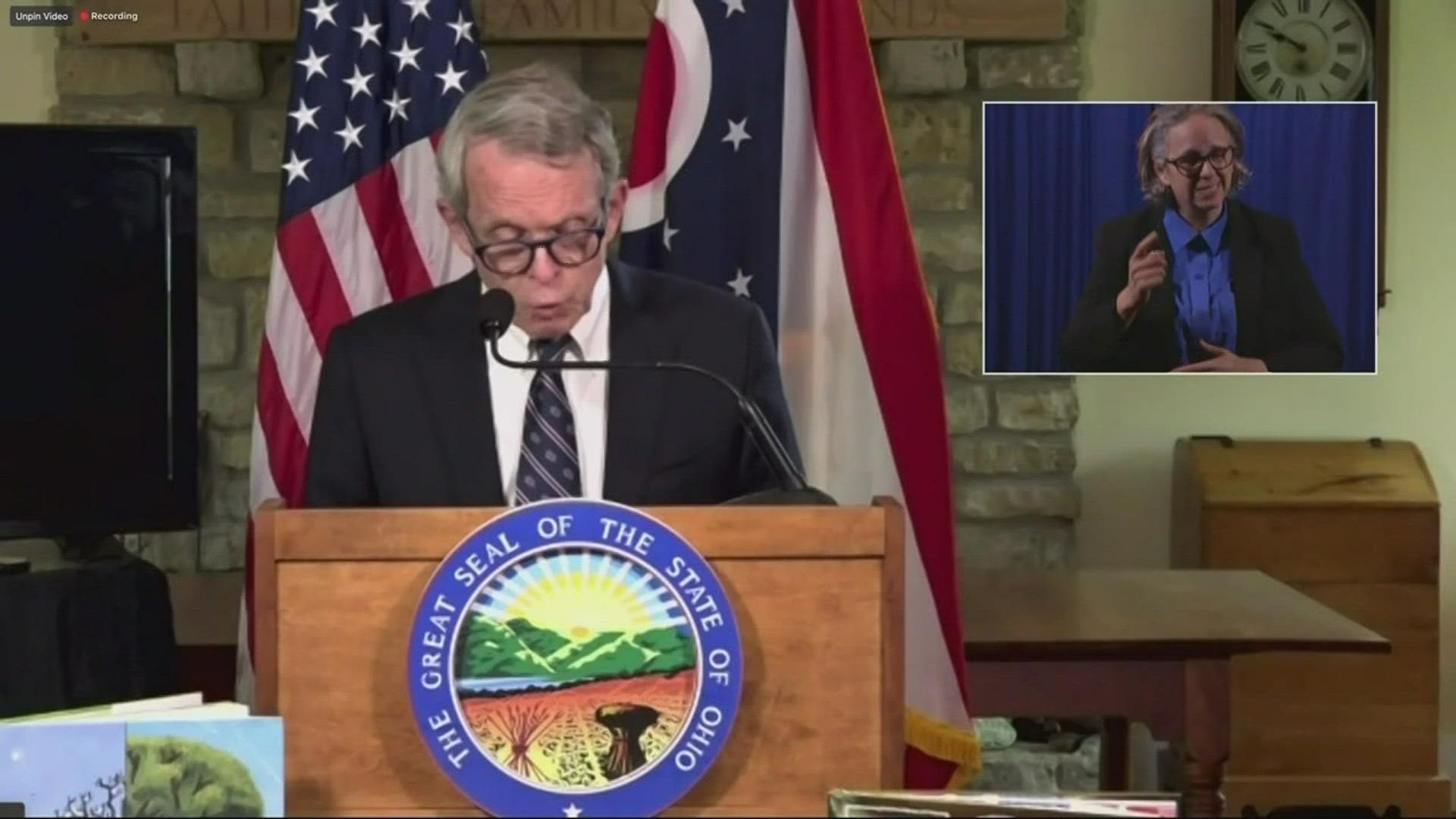COLUMBUS, Ohio — Ohio Gov. Mike DeWine made a long-anticipated announcement on Tuesday, saying that high school sports - and other sports - will go forward with safety guidelines in place, saying a new order will come out in the next few days.
The governor previously had said he would leave the decision of contact sports to health officials, school districts and parents, recognizing the risks that playing in the age of coronavirus brings.
The order DeWine announced Tuesday applies to all levels of sports, from professional to youth, and allows them to move forward.
Ohio Department of Health had in place an emergency order prohibiting competitions (other than intrasquad scrimmages) and requiring negative coronavirus tests for contact sports. DeWine on Tuesday said a new order will go in effect.
"We all know the importance of sports. Fran and I have seen that with our own children and grandchildren. Sports matters and makes a difference. It provides discipline, brings order and brings joy to those athletes and their families," DeWine said. "Each young person is different and has different needs. Our order provides the best guidance we can give for sports to be played in the era of COVID-19."
The governor also addressed the number of spectators allowed, saying ONLY family members and those close to the student-athlete will be permitted in the stands. Marching bands and drill teams during halftime will be permitted as will their parents.
"I hope that the desire to have a season will inspire young people, student-athletes 24/7 to be as careful as they can," DeWine said.
DeWine said that it will be up to schools to determine if some contact sports such as soccer and lacrosse will be played in the fall or move to spring. He noted that some urban schools have already decided to move their fall sports to the spring. Toledo Public Schools is one such urban district that made that determination.
"Success in sports will be measured by wins and losses, but it's also going to be measured by how well we can keep the COVID away from the team, from the athletes. I think we are empowering the students, the parents, the schools to take all we know to make the best decision for the children," DeWine said. "These are all tough decisions. We just ask everyone to weigh everything and make the best possible decision for that child, for that team, for that school."
Dr. Jim Borchers, a sports medicine specialist with the Ohio State University Wexner Medical Center and a former OSU football player himself, joined the meeting to discuss what the medical community has learned about COVID-19 and athletes.
"When we have our athletes follow the basic behaviors we've all been asked to do ... that makes a large difference for us. When the community has a large infectivity rate, we find that's more difficult and we struggle to have athletics and organized sports," he said. "Athletics and sports is so important to our mental health and it's important to have sports continue."
DeWine and Borchers discussed heart issues potentially spurred by COVID-19, and Borchers said while rare, sudden cardiac events do require vigilance and preparation through screening and having necessary emergency equipment on hand.
"One of the risk factors for sudden cardiac arrest is infection of the heart. One of the things we continue to study with COVID-19 is its predilection for it to infect the heart. It highlights the need for prevention and healthy communities," Borchers said.
Borchers has two high school age boys who play sports. He said that every individual needs to look at their own environment and see what the COVID-19 rate is to help determine whether they will allow their children to play sports, especially contact sports.
Lt. Gov. Jon Husted, himself a student-athlete during his college football days at the University of Dayton, has several times signaled support for high school sports to proceed this fall.
Last week, the Lucas County Regional Health Board let stand its Aug. 6 recommendation that fall sports competition be delayed until at least Oct. 1. The board's recommendation is just that - a recommendation - and the board acknowledged that schools will ultimately make their own decisions.
"Sadly, there is no totally safe group participatory sport. We know we have the disease in the community. ... We need to recognize that cold, hard fact. I hate this virus. I hate what it is doing to our first responders, our medical colleagues. The fact is we need to give our best advice on how to avoid this and the spread into our community," said Dr. Johnathan Ross, president of the board of health.

